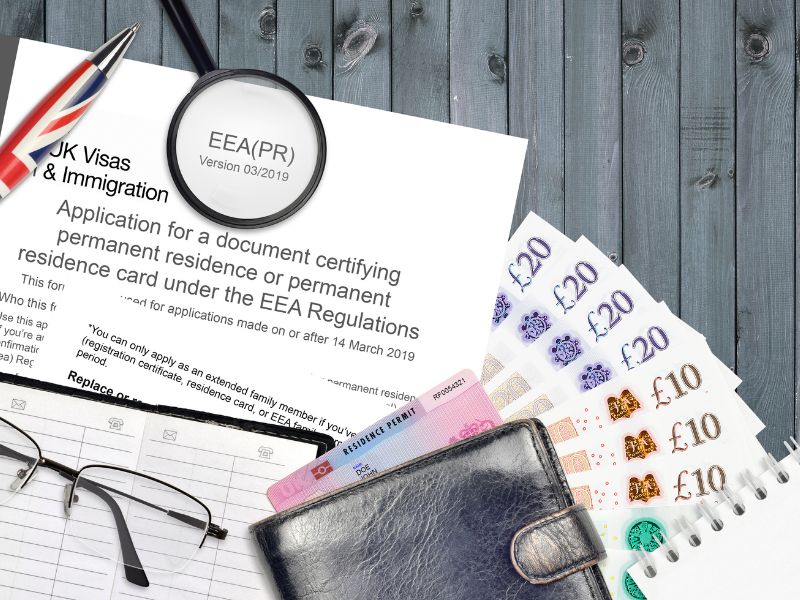The Role of a Co-Signer in Mortgage Applications: Pros, Cons, and Alternatives
 Are you dreaming of owning your own home but facing obstacles in securing a mortgage? You’re not alone. Many aspiring homeowners encounter challenges due to factors like credit history, income, or debt-to-income ratio. There is a potential solution that could help you achieve your homeownership goals: a cosigner.
Are you dreaming of owning your own home but facing obstacles in securing a mortgage? You’re not alone. Many aspiring homeowners encounter challenges due to factors like credit history, income, or debt-to-income ratio. There is a potential solution that could help you achieve your homeownership goals: a cosigner.
A cosigner, typically a family member or close friend, agrees to take joint responsibility for a mortgage loan alongside the primary borrower. While this arrangement can offer several benefits, it’s essential to weigh the pros and cons carefully before proceeding.
Pros of Having a Co-Signer
Higher Approval Odds: If you have a low credit score or insufficient income, having a cosigner with a strong credit history and stable income can significantly increase your chances of mortgage approval.
Access to Better Loan Terms: With a cosigner, lenders may offer you more favorable loan terms, such as lower interest rates or reduced down payment requirements, than you could obtain on your own.
Build or Rebuild Credit: Timely mortgage payments made with the help of a cosigner can improve your credit score over time, potentially allowing you to qualify for future loans independently.
Cons of Using a Co-Signer
Shared Financial Responsibility: Both you and your cosigner are legally obligated to repay the mortgage loan. If you default on payments, it could strain your relationship with the cosigner and negatively impact your credit.
Risk to Cosigner’s Finances: If you struggle to make mortgage payments, your cosigner may be required to step in and cover the payments to avoid default. This responsibility can potentially strain their finances and creditworthiness.
Limited Autonomy: Having a cosigner means involving another person in your financial decisions. You may need their consent for certain actions related to the mortgage, such as refinancing or selling the property.
Alternatives to Co-Signers
While cosigners can be beneficial, they’re not the only option for securing a mortgage. Consider these alternatives:
Improve Your Credit: Work on improving your credit score by paying bills on time, reducing debt, and correcting any errors on your credit report. A higher credit score can make you a more attractive borrower to lenders.
Increase Your Income: Boost your income through a salary raise, freelance work, or a second job. A higher income can improve your debt-to-income ratio, making you a more favorable candidate for a mortgage.
Explore Government Programs: Investigate government-backed mortgage programs designed to assist borrowers with low credit scores or limited income, such as FHA loans or VA loans.
Save for a Larger Down Payment: Save up for a larger down payment, as a higher upfront payment can offset other risk factors in your mortgage application.
While cosigners can help secure a mortgage, they come with their own set of risks and responsibilities. Before enlisting a cosigner, carefully assess your financial situation and consider alternatives that may better suit your long-term goals.
Remember, homeownership is a significant financial commitment, and finding the right mortgage solution requires careful consideration and planning. Whether you choose to proceed with a cosigner or explore other avenues, make sure to seek guidance from a qualified financial advisor or mortgage lender to make informed decisions tailored to your specific circumstances.

 If you are thinking about buying a new home shortly, you may already be searching online to get a feel for the different types of homes available in the local area. You may have reviewed your budget, and you may have a fair idea about a sales price that is comfortable for you to afford.
If you are thinking about buying a new home shortly, you may already be searching online to get a feel for the different types of homes available in the local area. You may have reviewed your budget, and you may have a fair idea about a sales price that is comfortable for you to afford. Becoming a homeowner in a foreign land is an exciting yet intricate journey. For non-U.S. citizens, securing a mortgage in the United States involves understanding and meeting specific requirements. We will explore the essential prerequisites and considerations for non-U.S. citizens aspiring to own a piece of the American dream.
Becoming a homeowner in a foreign land is an exciting yet intricate journey. For non-U.S. citizens, securing a mortgage in the United States involves understanding and meeting specific requirements. We will explore the essential prerequisites and considerations for non-U.S. citizens aspiring to own a piece of the American dream.